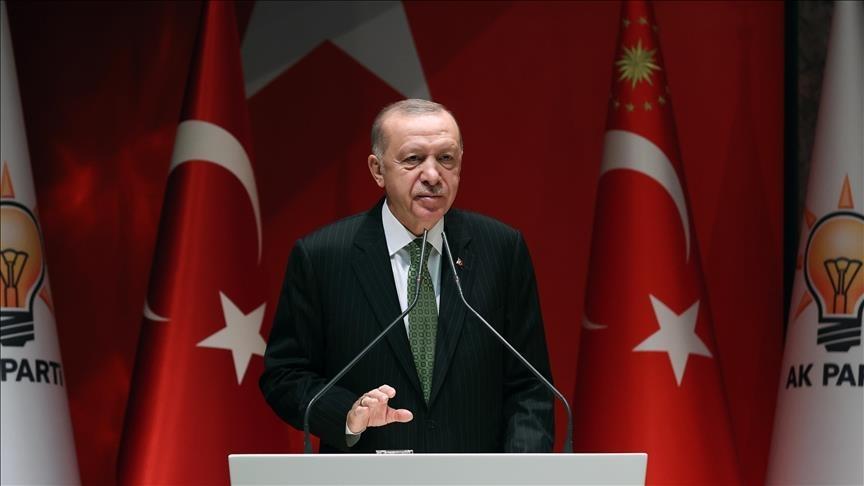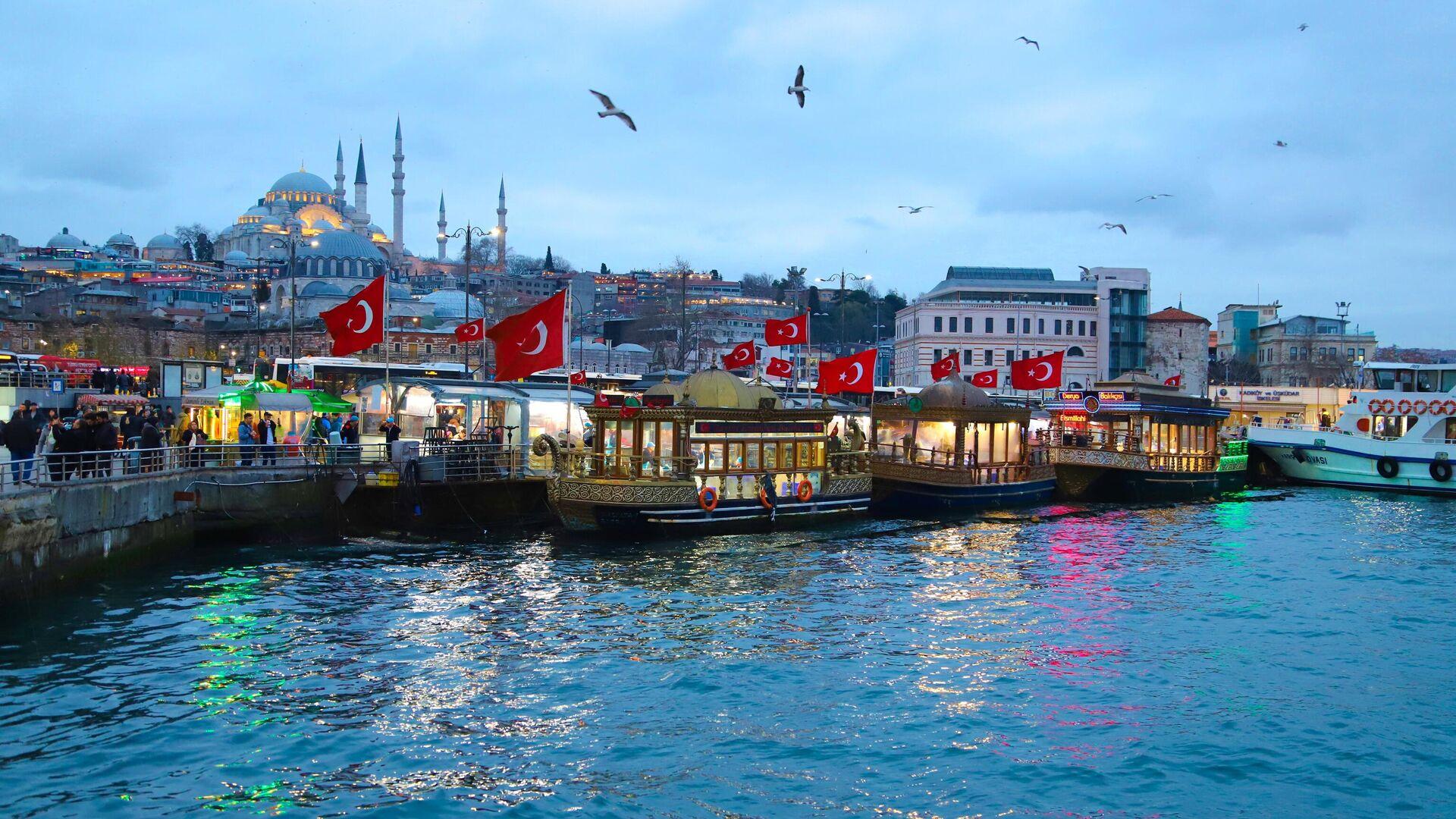Will Türkiye find ways to peace in Eastern Europe? Review by Serhey Bohdan
Today, August 1, the first vessel with the export of Ukrainian grain will leave the port of Odesa. This was made possible thanks to a multilateral agreement concluded and implemented primarily through the efforts of Ankara. The Turkish government supports Ukraine and even supplies weapons to it, but avoids moralizing, trying to find a way out of the impasse rather than driving the region deeper into a bloody conflict. On August 5, Turkish President Erdogan will travel to Sochi for talks with Putin.
Russia and Iran have agreed with Türkiye, while Finland and Sweden have not yet
Putin and Erdogan have already met recently - at a trilateral summit meeting held in Tehran on July 19. As we predicted, it was the Turkish side that played the role of an agenda-setting leader there. As a result, the leaders of Russia and Iran practically supported the position of their Turkish counterpart on the main topic of the summit - the situation in Syria. As the Moscow-based Kommersant, which clearly does not sympathize with Erdogan, put it, "This was Recep Erdogan's day. Erdogan is known to be trying to remove Kurdistan Workers' Party (PKK)-affiliated units from Türkiye's southern borders. The PKK has been at war with the Turkish government for four decades, using terrorist methods as well. Since the 2000s, the PKK and its branches have been actively cooperating with Western states on a number of fronts, primarily in Syria.
Speaking in Tehran, Putin and Raisi described the PKK's structures in Syria in different ways but left no room for discrepancies. Referring to "groups that work under the leadership of the United States," the Iranian president said that they, "among other things, plunder Syrian resources, especially oil. All of them must leave Syria." The Russian president echoed him: "The situation on the territories beyond the control of the Syrian authorities is especially alarming... The destructive policy of Western countries, led by the United States, contributes to it... They encourage in every possible way the separatist sentiments on the territory of the country."
It is interesting that on the same day Erdogan also pledged to block Finland and Sweden from joining NATO. On the one hand, Moscow could not have disliked it; on the other, Ankara explained that these countries were in no hurry to stop the activities of radical Kurdish organizations on their territory despite their previous agreements. Türkiye, on which the fate of Finland and Sweden depends - can we find a better illustration of how the balance of power in international politics has changed in recent decades? Decades in which Ankara has become more assertive in defending its interests.
As a reminder, this was also the case in the current dispute with Finland and Sweden, from which Türkiye demanded in May to stop the activities of PKK and other radical opposition structures and activists in these countries and blocked the consideration of their applications for NATO membership. By late June, Ankara seemed to have agreed to accept those states into NATO if they put an end to the activities of a number of radical structures. But Stockholm and Helsinki were in no hurry to do so, hence Ankara's current harsh reaction. The Turkish government has no intention of backing down: in a July 26 broadcast on TRT, Erdogan again said that he would not agree to Sweden and Finland joining NATO unless they fulfill their agreed obligations.

Agreements of global significance
However, the main diplomatic success of Türkiye in July was the deal on the export of the Ukrainian grain, which would make it possible to slightly alleviate the global food crisis. On July 22, Russia and Ukraine signed an agreement in Istanbul on ensuring Ukraine's grain exports via the Black Sea. Formally, these agreements are multilateral and were also signed by Türkiye and the United Nations, but it was immediately obvious that it was Türkiye that played the key role in everything.
UN Secretary General Antonio Guterres, who was personally present in Istanbul, spoke about the importance of the agreements reached: "You have overcome obstacles and put aside differences to pave the way for an initiative that will serve the common interests. Promoting the well-being of humanity was the driving force behind these negotiations." Later, his staff said that Guterres considers these agreements to be his main achievement as Secretary General. All global players, including the "collective West" and China, reacted positively to the Istanbul agreements.
Even the signing of these documents was not easy, it was constantly predicted to fail, and Ukraine and its Western allies were already seriously looking for ways to export grain by river and overland transport. It was no less difficult to keep the agreement in force after the Russian shelling of Ukrainian Odesa immediately after the signing. Ankara succeeded, and Ukrainian deliveries to the world market are about to resume. Formally, the UN will coordinate grain exports, but by and large, everything depends on Ankara. After all, representatives of Türkiye and the UN will check the ships. It is quite obvious which of them will have real power.
And there's more. First, a three-year memorandum of cooperation between Russia and the UN on "lifting various restrictions on exports of Russian agricultural products and fertilizers" was signed at the same time in Istanbul. This sounded like a bitter irony against the backdrop of Russia's continued restrictions on Turkish agricultural products - Türkiye is helping Russia to export food. Truly, whoever digs a pit ends up in it.
Second, Turkish Defence Minister Hulusi Akar told Al-Jazeera on July 26 that the "food deal" could be followed by an agreement on fuel, which is currently being developed according to a similar model. According to him, it would "contribute to resolving the global crisis." This is how a multipolar world can emerge - not through declarations, but through the resolution of real issues on the world agenda.
From grain and fuel to peace
Even before the Russian invasion of Ukraine, Türkiye tried to play a mediating role in the Russian-Ukrainian conflict. The last time representatives of the Russian and Ukrainian governments discussed the possibility of a peace settlement in Istanbul was at the end of March, after which their communication ceased. At first glance, the situation with the negotiations looks hopeless. For example, Ukrainian Foreign Minister Dmytro Kuleba told Forbes.ua: "The negotiations are directly linked to the situation on the front... Russia should sit down at the negotiating table after its defeat on the battlefield."
However, even before the "grain deal," Erdogan's administration stated that it was high time for Moscow and Kyiv to come to an agreement, and not only on grain. The success of the "grain deal" gave more weight to that statement. On Sunday, the Turkish president's spokesman Ibrahim Kalin said: "If the [grain] deal is realized successfully, the peace talks may well begin. If the international community does not show the will to stop the war, then in two-three months we will speak about it again. The signed grain agreement must be protected. Our diplomatic efforts will continue within that framework."
Indeed, the grain negotiations have clearly demonstrated that Erdogan is probably the only world leader that both Vladimir Putin and Volodymyr Zelenskyy listen to. And he achieved this not by trying to please all the parties, but on the contrary, by consistently defending his line, avoiding the moralizing characteristic of many Western politicians. Erdogan, for example, has never been afraid to condemn Russia's seizure of Crimea and other excesses and still negotiate with Putin.

In response to Turkish diplomatic successes toward resuming Russian-Ukrainian peace talks and demands that Sweden and Finland clamp down on organizations that have the blood of Turkish citizens on their hands, the notable visit later in the week by German Foreign Minister Annalena Baerbock was a welcome one. She (and her Green Party) is known for claiming a new, more principled, and ethical stance, including a tough line on many issues, particularly with regard to Russia. Baerbock came to Ankara and first told off her hosts at a press conference with her Turkish counterpart and then engaged in communicating with the Turkish opposition. This brings to mind the words of a cynical Cold War-era American diplomat who once remarked that "there are more important things than fighting for peace."
Real politics, not a historical reenactment
Türkiye cannot be accused of being pro-Putin or anti-Russian. It is the preservation of ties with all sides that allows this country to maintain influence on current events. Against the backdrop of its support for Ukraine and non-recognition of Russian annexations, Ankara has not rejected either the Russian nuclear power plant (like the Czech Republic) or the gas pipeline (like Germany). And there were plenty of reasons for it to take a stand and fight with Russia - the Russian plane shot down in Syria in 2015 or the Russian intervention in Syria could have been the beginning of a confrontation. Indeed, the South Stream gas pipeline project was suspended because of the downed plane.
But it was replaced by the Turkish Stream pipeline, launched in early 2020, which not only provided Türkiye with cheap gas (which, as we can see, does not make the country dependent on Putin), but also seriously restructured the geopolitics of Türkiye's neighboring regions. Before Türkiye was dependent on a number of transit countries (from Ukraine to the Balkans) through which its needed gas passed, in the last couple of years it has become the opposite - the Balkan countries began to receive gas through Türkiye.
Turkish history makes it possible to construct a narrative of the original "war with the Russians" no worse than that of the "New Europe" countries. And to take up the resumption of the struggle with Russia inspired - like some Eastern European states - by motifs from a century or four hundred years ago, telling ridiculous theories that Putin should be understood through the prism if not of Stalin, then of Ivan the Terrible or even the Horde.
However, no matter how much the Erdogan government is accused of some kind of neo-Ottomanism, it did not plunge into the political reenactment of Eastern European liberals and nationalists, but pursued a realistic policy, focusing on the interests and development opportunities of Türkiye in the modern era. The constructive and realistic approach has borne fruit - Türkiye's influence and the popularity of its model are noticeable even in the Balkan and Arab countries. And this is despite the fact that in recent decades in these countries the topic of Turkish imperialism and the decline associated with the Ottoman era has been discussed incessantly (even at the level of school textbooks)! But the "neo-Ottoman" regime of Erdogan came, as the influential Western media tells us, and suddenly became popular in the Arab world.
Türkiye is one of the few truly sovereign countries, i.e., able to have its own opinion and to say "no" to all, even the powerful world powers, if necessary, and at the same time to defend itself against attempts to turn it into a pariah. It is precisely such independent, firmly standing on their own feet politically, economically, militarily, and culturally that the current Eastern European policy lacks in view of its stabilization and shifting into a constructive direction. And that is probably why it is no coincidence that the current peace efforts have been linked precisely with Ankara. Ankara has a realistic view of the situation and understands that it cannot be allowed to continue the war "to the last Ukrainian," turning a huge country into a pile of ruins, because all the neighbors would lose out.








